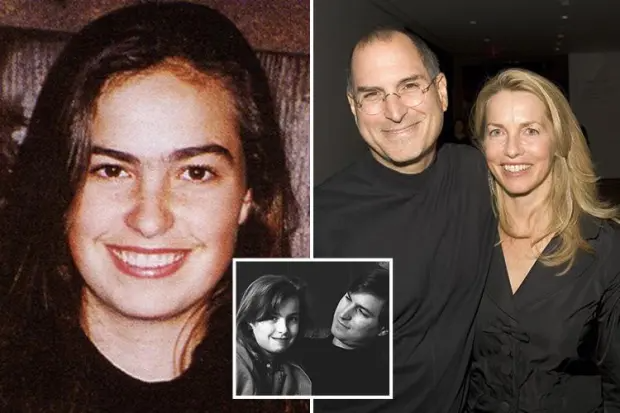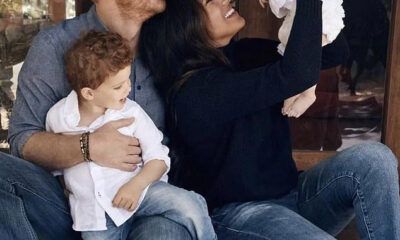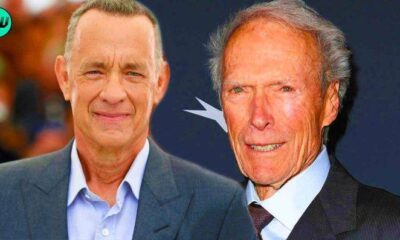Lisa Brennan-Jobs has published a memoir, “Small Fry,” in which she portrays her father, Apple co-founder Steve Jobs, as a sadistic and horrible father who was sexually inappropriate, verbally and psychologically abusive, pitiless and cheap, with his time, money, emotions, and attention.
The memoir depicts Jobs as a man who liked to make little girls cry.
Brennan-Jobs recounts a deathbed scene with her father where she tried to make every interaction perfect, and after hugging her father goodbye, Jobs said to her, “You smell like a toilet.”
Brennan-Jobs has expressed fear that readers might not appreciate the love she still has for her father or realize she has forgiven him.
The Jobs family has released a statement about Brennan-Jobs’s memoir, “The portrayal of Steve is not the husband and father we knew.”
Her mother, Chrisann Brennan, also revealed to The New York Times that the memoir downplays her daughter’s childhood.
Brennan-Jobs spent the first three years of her life without a father.
Jobs denied paternity until late December 1980 when he rushed through a legal settlement of $500 a month in child support, four days after Apple went public, making Jobs worth over $200m.
Jobs’s sadism extended to Brennan-Jobs’s young cousin Sarah, who, during a dinner at a local shopping center, was berated and called “a sobbing mess” by Jobs.
Brennan-Jobs says that Jobs pushed her out of family photos, treated her like hired help, didn’t pay her, and told her she’d never get anything from him and would grow up to be nothing.
On vacation, Jobs introduced Brennan-Jobs to his friend Larry Ellison, squeezed her tight when Ellison bragged he had flown one woman out of town and was flying another one in, neither any wiser.
Brennan-Jobs describes her father’s obsession with female beauty, which gave her “a strange feeling” and includes anecdotes of him talking about his lust for Ingrid Bergman and a woman named Tina, whom Jobs dated and would often make out with in front of Brennan-Jobs.
Jobs made no effort to hide his sexual behavior and jokes from Brennan-Jobs, going so far as to ask his daughter if she masturbated and telling her how to insert a diaphragm.
The memoir is a revelatory depiction of tech-world hypocrisy and the belief held by some men that they, in making our lives better, are beyond rebuke.
Brennan-Jobs’s book has been published as the #MeToo movement approaches its first anniversary.
Jobs deserves the same cultural re-evaluation as Woody Allen, Harvey Weinstein, and all the rest.
The Great Man mythology itself should be done.
On the “Today” show, Brennan-Jobs said she doesn’t hate her father; she wishes only that she had had more time with him.
However, this does not mean that others have to forgive Steve Jobs for his behavior.
Brennan-Jobs’s memoir has also challenged the traditional portrayal of Jobs as a difficult man whose genius made him so and justified any personal failings.
Brennan-Jobs’s depiction of her father as a monster contradicts the authorized biography of Jobs by Walter Isaacson, which depicted Brennan-Jobs as uncaring and callous.
Aaron Sorkin’s depiction of Steve’s relationship with Brennan-Jobs in his movie “Steve Jobs” similarly played down Jobs’s mistreatment of his daughter.
Brennan-Jobs’s memoir has generated significant controversy and discussion about the behavior of Steve Jobs.
Many have praised Brennan-Jobs for her courage in speaking out against her father, while others have questioned her motivations for doing so.
Some have also criticized her mother, Chrisann Brennan, for her own role in the family’s dysfunction.
Despite the controversy, Brennan-Jobs’s memoir has brought attention to the issue of abuse in families and the importance of speaking out against it.
It has also highlighted the need for greater accountability among powerful individuals in the tech industry and elsewhere.
In an interview with The Guardian, Brennan-Jobs reflected on her experiences with her father and the impact of his behavior on her life.
She described the difficulty of reconciling her love for her father with his abusive behavior, and the struggle to come to terms with her own feelings about him.
“I think there’s this idea that you should just forgive and forget, and that’s a really hard thing to do,” she said. “I don’t think it’s necessary to forgive someone to move on, and I don’t think it’s necessary to forget either.”
Brennan-Jobs’s memoir has sparked a broader conversation about the responsibility of parents to their children, particularly in cases where they are highly successful or wealthy.
It has also highlighted the need for greater awareness of abuse and the importance of speaking out against it, even in cases where the abuser is a powerful or respected figure.
As more people speak out about their experiences with abuse and mistreatment, there is hope that these issues will receive greater attention and that there will be greater accountability for those who engage in such behavior.
However, much work remains to be done to ensure that children and families are protected from abuse and that perpetrators are held accountable for their actions.















































































